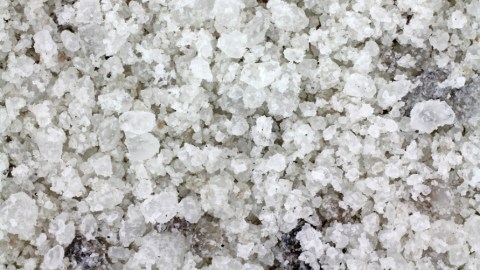Too Much Road Salt is Bad for the Local Environment

According to Wired‘s Gwen Pearson, over 113,000 tons of salt were applied to Boston roads during this past winter’s vicious onslaught of neverending snow. It doesn’t take a slide rule or calculator to realize, “Whoa, that’s a lot of salt.” So much salt, in fact, that it would take 22,600 average-sized Asian elephants to balance the scales. Considering there are only about 30,000 to 40,000 Asian elephants left in the wild, that’s a whole lot of elephants.
So what’s the point, you might ask? Well, as Pearson writes, most of that salt doesn’t just disappear:
“How much salt ends up in our water? A lot — 84% of US streams measured in a recent research publication had increased chloride concentrations. That’s from the chloride half of Sodium Chloride (NaCl), the most common salt used on roads. Nearly 30% percent of sites monitored were over the toxic chloride levels of the U.S. Environmental Protection Agency (EPA) more than 100 days a year.”
Pearson goes into the many issues that arise when water supplies become polluted with too much salt: abandonment of wells, attrition within the natural ecosystem, harm within human diets, etc. Luckily, there are efforts in place to make treating frozen roads more efficient. It all starts with technology and innovation. New compounds developed from recycled waste reduce the actual salt needed for road treatment. Next-generation snowplows could come equipped with special sensors that determine whether salt is really necessary. Additional innovations for pre-treating roads could also be a game changer.
With abnormally harsh northeastern winters becoming less abnormal each year, it’s nice to know there are people hard at work developing solutions to what has the capacity to become a truly elephantine problem.
Read more at Wired.
Photo credit: BW Folsom / Shutterstock




